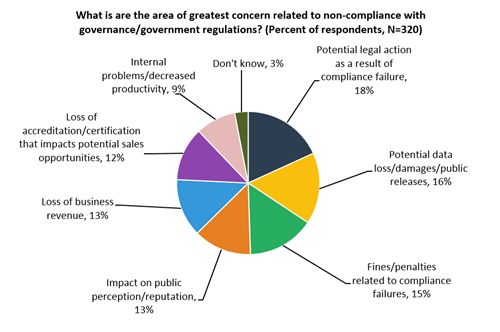|
The California Consumer Privacy Act is a landmark piece of consumer privacy legislation, which passed into California law on June 28th of 2018. The bill is also known as AB 375. This act is the strongest privacy legislation enacted in any state, giving more power to consumers with regards to their private data. |
Il California Consumer Privacy Act è un elemento fondamentale della legislazione sulla privacy dei consumatori, che è passata alla legge californiana il 28 giugno 2018. Il disegno di legge è noto anche come AB 375. Questo atto è la legislazione più forte sulla privacy emanata in qualsiasi stato, dando più potere ai consumatori per quanto riguarda i loro dati privati. |
|
Companies that already comply with GDPR may find that they currently meet many of the requirements set forth in the California Consumer Privacy Act. With many experts predicting that other states will pass similar legislation in the coming years, companies across the U.S. that take proactive steps today to better protect consumer data will be best equipped for future regulations. |
Le aziende che già rispettano il GDPR possono scoprire di soddisfare al momento molti dei requisiti stabiliti nel California Consumer Privacy Act. Con molti esperti che prevedono che altri stati approveranno leggi simili nei prossimi anni, le aziende negli Stati Uniti che adottano misure proattive per proteggere meglio i dati dei consumatori saranno meglio attrezzate per le future normative. |
|
These two data privacy regulations fundamentally extend individuals’ rights to the data being captured about them, who has it, and how it is used. This also typically includes the ability to have private data deleted or barred from use in certain circumstances. While GDPR is much more prescriptive than CCPA, they both share a notion of protection or preservation of the data that organizations must comply with, for example backups and archives. |
Queste due normative sulla privacy dei dati estendono fondamentalmente i diritti degli individui ai dati acquisiti su di loro, a chi li possiede e a come vengono utilizzati. Ciò include in genere anche la possibilità di eliminare o di non utilizzare dati privati in determinate circostanze. Sebbene il GDPR sia molto più prescrittivo di CCPA, entrambi condividono una nozione di protezione o conservazione dei dati che le organizzazioni devono rispettare, ad esempio backup e archivi. |
|
Failing to comply with governance/governmental regulations is not an option and can cause many undesirable consequences, as evidenced in ESG research (see Figure 1).[1] The addition of this new breed of data privacy regulations, and in the case of the U.S., the potential multiplication of these regulations, with each state offering its own variation, will only create additional exposures, audits, and risks for those who don’t plan accordingly. |
Il mancato rispetto delle normative governative non è un'opzione e può causare molte conseguenze indesiderabili, come evidenziato dalla ricerca ESG (vedi Figura 1). [1] L'aggiunta di questa nuova generazione di norme sulla privacy dei dati e, nel caso degli Stati Uniti, la potenziale moltiplicazione di queste normative, con ogni Stato che offre la propria variante, creerà solo ulteriori esposizioni, audit e rischi per coloro che non pianificano di conseguenza. |

|
It should also be noted that neither CCPA (nor GDPR) supersedes other compliance or regulatory requirements (for example, the requirement to keep data archived for x number of years). |
Va inoltre notato che né la CCPA (né il GDPR) sostituiscono altri requisiti di conformità o normativi (ad esempio, l'obbligo di conservare i dati archiviati per x numero di anni). |
|
[1] Source: ESG Master Survey Results, 2018 Data Protection Landscape Survey, November 2018. |
[1] Fonte: ESG Master Survey Risultati, 2018 Data Protection Landscape Survey, novembre 2018. |